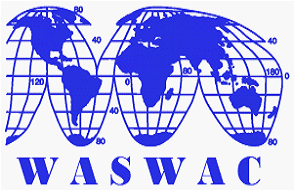
BACKGROUND
WASWAC World
Conference is set up by World Association of Soil and Water Conservation
(WASWAC). It is aimed to provide a platform to exchange and communicate for all
researchers related soil and water conservation. The conference is held every
three years, the first three session were held in Xi’an of China in 2010, in
Chiang Rai of Thailand in 2013, and in Belgrade of Serbia in 2016. The fourth
session will be held in New Delhi of India in 2019.
Soil and Water Resources Management for Climate
Smart Agriculture and Global Food and Livelihood Security
At New Delhi, India, November 5th-9th,
2019










Natural
resources, especially soil & water, are essential components not only of
agro-ecosystems but also of the total biosphere. However, over the time, these
resources have been degraded and depleted in the absence of judicious use,
management and conservation. The degradation of soil and water resources has
long been recognized as a primary threat to productive and sustainable
agriculture. Ongoing climate changes have added complexities to the challenges
faced by land users and policy makers, whether in developed or developing
countries. This international conference, therefore, is intended to provide a
forum, and perhaps an action plan, to address these global concerns.
The Soil
Conservation Society of India (SCSI) will be hosting the conference from November
5-9, 2019 at New Delhi, India. For the first time, the World Association of
Soil and Water Conservation (WASWAC) and the International Soil Conservation
Organization (ISCO) will jointly plan the conference as the 4th WASWAC World
Conference the 20th ISCO Conference, with SCSI hosting it as the 4th SCSI
International Conference. The purpose of the conference can be fulfilled by
addressing the themes and sub-themes listed below:
THEMES AND SUB-THEMES
1.
Soil Degradation – inventorization, issues and Management
a. Soil
salinization, acidification, compaction (structural degradation), pollution –
issues and management
b. Urban soils
and their management
c. Soil quality
challenges in resilient agriculture
d. Soil erosion –
modelling, innovations in management under different land uses
e. Remote sensing
and GIS applications for managing soil degradation
f. Integrated
watershed management
g. Restoration of
degraded soils
2.
Water Resources Conservation and Management
a. Conservation
irrigation innovations for higher water productivity
b. Conjunctive
use of poor quality waters
c. Low-cost
groundwater recharge techniques
d. Rain/runoff
water harvesting in urban, peri-urban and rural areas
e. Recycling of
wastewaters
3.
Sustainable Farming Systems vis-a-vis Climate Change
a. Intensification
of cropping systems for adaptation to climate change
b. Integrated
farming system for livelihood and natural resource security
c. Biodiversity
conservation through integrated farming system
d. Coastal
ecosystem management
4.
Land Use Planning and Management under Changing Soil and Water Scenario
a. Land
management in mountainous, plateau, plains, desert, grassland, alpine regions
b. Shifting
cultivation – impacts, management
c. Carbon
sequestration potential of soils under different land uses and in agro-climatic
regions
5.
Biodiversity Conservation for Mitigating Climate change
a. Aforestation
and forest management for sustained rural livelihood
b. Biodiversity
conservation in different agro-ecological regions vis-a-vis climate change
c. Agro-forestry
systems – scope, issues and system combinations
d. Protection and
preservation of wildlife and flora & fauna in the adverse environmental
conditions.
6.
Socio-economic and Gender issues in Natural Resource Management
a. Socio-economic
constraints in soil and water conservation
b. Socio-economic
development and livelihood support to farming community.
c. Women empowerment
in natural resource management
d. Role of women
in environmental protection
7.
Policy Interventions in Soil and Water Management for Global Food security
a. Global policy
framework for ensuring food, energy and livelihood security
b. Community participation
in conservation and sustainability interventions
c. Irrigation
development and rainfed farming systems
d. Policy
interventions on the use of groundwater
8.
Bio-Industrial approaches to Watershed for Food and Livelihood Security
a. Bio-industrial
watershed management for enhancing income and employment generation
b. Extension,
Education and Training initiatives for promotion of soil and water
conservation.
c. Use of
Bio-industrial waste for development and management of degraded Natural
Resources.
SUBMISSION
OF ABSTRACTS
Abstracts are
invited on any of the above theme areas or other related areas. The abstracts
should not exceed 500 words, should be typed in double space leaving 2.5 cm
margin on all sides on A-4 paper. Three to five key words should be given below
the abstract in italics. The font should be Times New Roman in 12 pt. size. The
full papers of accepted abstracts shall be evaluated, edited and may be in the
conference proceeding book. The full papers must be restricted to 10-12 pages
typed in double space, 12 pt size A-4 paper in Times New Roman font including
tables and illustrations. The abstract and full paper should be sent through
e-mail aticscsi2019@gmail.com
(WASWAC members please also send to waswac@foxmail.com) in
MS word format. A committee will review the abstracts and decide about the
nature of presentation (oral/poster). Author(s) will be intimated regarding the
acceptance of the papers. Awards will be given for the best paper and poster
presentation in each thematic area.
LANGUAGE
The Official
language of the Conference will be English.
IMPORTANT
DATES
Last date of
Abstract submission:
May 15, 2019
Intimation of
acceptance of abstracts :
June 15, 2019
Submission of
full length papers :
July 30, 2019
Last date for
Registration (without late fees) : September
1, 2019
Conference
opening : November
5, 2019
VENUE
The Conference
will be organized at the National Agricultural Science Centre (NASC) Complex,
Dev Prakash Shastri Marg, Pusa Campus, New Delhi - 110 012 (India).
ACCOMMODATION
The Conference
venue is located at the heart of the National Capital. A wide range of hotels
are available within a short distance from the Conference venue. First-time
visitors to India may find it more convenient to stay at the hotels which are
within reasonable distance from the Conference venue. The tariff varies from ?
4,000/- to 15,000/- (US$ 60 to US$ 200) per room per day stay near National
Agricultural Science Centre Complex, PUSA Campus, New Delhi. The organizers
have negotiated with some of the hotels in vicinity and they agreed to offer
discounts for the participants for the conference periods. The list of hotels
and their contacts shall be made available on website for direct bookings.
REGISTRATION
Conference is
open only for the registered participants. Registration fees details are
presented below. (Kindly make sure to pay with additional transaction charges
on your card, if any)
|
|
US$
|
|
Delegates
|
300
|
|
Delegates
Members (SCSI/WASWAC/ISCO)
|
250
|
|
Accompanying
person
|
200
|
|
Students
|
200
|
Registration fee
includes: Conference kit, access to Conference sessions, daily Conference
lunches and specified dinners. Also half day local site seeing tour is
complimentary. Students are required to produce a valid identity card/
certificate from their Supervisor/Institute for availing the student discount.
Any
WASWAC members who wants to get the discount of registration fee, should also
send the registration information to the secretariat via waswac@foxmail.com
Payment
of Registration fee: Confirm your registration by payment of
non-refundable registration fee either by demand draft in favour of SOIL
CONSERVATION SOCIETY OF INDIA INTERNATIONAL CONFERENCE 2019 payable at New
Delhi or through electronic payment. The bank details are as follow:
|
Name of the account holder
|
SOIL CONSERVATION SOCIETY OF INDIA
INTERNATIONAL CONFERENCE 2019
|
|
A/C No.
|
91531010001273
|
|
Bank Name & Branch
|
Syndicate Bank, NASC, Pusa Campus, New
Delhi-110012
|
|
IFSC Code
|
SYNB0009153
|
|
MICR No.
|
110025175
|
Please ensure to
attach bank/e-transfer details/challan/RTGS transfer details with registration
application form at email: icscsi2019@gmail.com.
Note:
On the spot registration fees via debit/credit card facilities will not be
available.
VISA
INFORMATION
All foreign
nationals visiting India are required to possess a valid International travel
document in the form of a National Passport with a valid visa. All individual
visa seekers are advised to apply for the Indian visa, through online
application link. For details please visit https://indianvisaonline.gov.in.
However, a letter from organizers for visa shall be issued on request from
individual after acceptance of abstract or confirmation of participant intending
to participate in conference. The participant should provide complete address
with proof and copy of passport/passport number etc.
TENTATIVE PROGRAMME
DAY 1
8:30-10:00
hrs. Registration
9:30-11:00
hrs. Inaugural Session
11:00-11:30
hrs. Hi-tea
11:30-12.15
hrs. Panel Discussion (Key note speaker)
12:15-13:30
hrs. Technical Session I Lead Papers Oral Presentations
13:30-14:30
hrs. Lunch
14:30-16:00
hrs. Technical Session II Lead Papers Oral Presentations
16:00-16:30
hrs. Tea Break
16:30-17:30
hrs. Poster Session I
18:00-19:30
hrs. Cultural Programme
19:30-21:00
hrs. Dinner
DAY 2
09:00-09:45
hrs. Panel Discussion (Key note speaker)
9:45-11:45
hrs. Technical Session III Lead Papers Oral Presentations
11:45-12:00
hrs. Tea Break
12:00-13:45
hrs. Technical Session IV Lead Papers Oral Presentations
13:45-14:30
hrs. Lunch
14:30-16:00
hrs. Technical Session V Lead Papers Oral Presentations
16:00-16:30
hrs. Tea Break
16:30-17:30
hrs. Poster Session II
18:30-21:00
hrs. Gala Dinner
DAY 3
09:00-09:45
hrs. Panel Discussion (Key note speaker)
9:45-11:45
hrs. Technical Session VI Lead Papers Oral Presentations
11:45-12:00
hrs. Tea Break
12:00-13:45
hrs. Technical Session VII Lead Papers Oral Presentations
13:45-14:30
hrs. Lunch
14:30-16:00
hrs. Technical Session VIIIa Lead Papers Oral Presentations
16:00-16:30
hrs. Tea Break
16:30-17:30
hrs. Poster Session III
18:30-21:00
hrs. Dinner
DAY 4
09:00-09:45
hrs. Panel Discussion (Key note speaker)
9:45–11:45
hrs. Poster Session IV & V
11:45-12:00
hrs. Tea Break
12:00-13:45
hrs. Poster Session VI& VII
13:45-14:30
hrs. Lunch
14:30-19:00
hrs. Half day site seeing (local)
19:30-21:00
hrs. Dinner
DAY 5
09:00-09:45
hrs. Panel Discussion (Key note speaker)
9:45–11:45
hrs. Technical Session VIIIb Lead Papers Oral Presentations
11:45-12:00
hrs. Tea Break
12:00-13:45
hrs. Poster Session VIII
13:45-14:30
hrs. Lunch
14:30-16:00
hrs. Sponsored Session/Group Discussion
16:00-16:30
hrs. Tea Break
16:30-18:00
hrs. Valedictory Session
19:30-21:00
hrs. Dinner
WEATHER
The weather of
New Delhi in November is mildly cool and pleasant. The mean minimum and maximum
temperatures are 12°C and 24°C, respectively. However, the venue of the
conference and International Guest House is in vast open area with lush green
and Eco-friendly environment.
ORGANIZING
COMMITTEE
Chairman:
Prof. (Dr.) Suraj Bhan, President, SCSI, India
Co-Chair: Prof.
Samir A. El Swaify (ISCO), USA
Prof. Li Rui, President, (WASWAC), China
Dr. Miodrag Zlatic, (WASWAC) Serbia
Convener
& Organizing Secretary: Dr. Sanjay Arora
International
Committee Members:
Prof Samir A. El
Swaify (ISCO), USA
Prof. Li Rui,
China
Dr. I. Pla-Sentis
(Spain)
Prof. Ning Duihu,
(WASWAC)
Dr Scott Van Pelt
(ISCO), USA
Prof. R. Lal
(IUSS), USA
Dr Rainder Horn
(IUSS), Germany
Dr. Takashi
Kosaki (IUSS), Japan
Dr Donald Suárez
(IUSS), USA
Dr. Miodrag
Zlatic, Serbia
Dr Hubert
Savenije (IAHS),The Netherlands
Dr Antonio
Rodríguez (SECS), Spain
Dr Martin J.
Haigh (WASWAC), GB
Dr.Machito
Mihara, Japan
Dr. S.H.R.
Sadeghi, Iran
Dr.Mike Grundy
(Australia)
Dr.Mark A.
Nearing (USA)
Dr.Jose Rubio
(Spain)
Dr.Mohammad Sabir
(Morocco)
Dr. Alok Sikka,
IWMI, NewDelhi
Dr. Kaushik
Majumdar, Vice-President, Asia, Africa & Middle East, IPNI
Working
Committee
Prof. M.S. Swaminathan,
Chief Patron, SCSI, New Delhi
Prof. (Dr.) Suraj
Bhan, President, SCSI, New Delhi
Dr. T.B.S.
Rajput, Emeritus Scientist, ICAR - WTC & Advisor, SCSI, New Delhi
Dr. S. S.
Subramaniyan, Ex Director, DoLR, Ministry of Rural Development, New Delhi
Sh. V.W. Ambekar,
Ex-Director of Agriculture, Uttar Pradesh
Dr. K. K.
Satpathy, Ex. Director, NIRIJAFT, Kolkata
Sh. B. Rath,
Technical Expert (WM), NRAA, New Delhi
Dr. B.S. Negi,
Former Mission Director, SHM, Uttarakhand
Dr. V.K. Bharti,
CPO, ICAR, New Delhi
Sh. Shamsher
Singh, Ex Additional Commissioner, NRM, Ministry of Agriculture & Farmers'
Welfare, New Delhi
Sh. H.S. Lohan,
Vice President, SCSI, New Delhi
Dr. Sanjay Arora,
Vice President, SCSI, New Delhi
Sh. R.A.S. Patel,
Vice President, SCSI, New Delhi
Dr. R.K. Sahu,
Vice President, SCSI, New Delhi
Sh. Jagat Vir
Singh, Secretary General, SCSI, New Delhi
Dr. Satya
Prakash, Joint Secretary, SCSI, New Delhi
Dr. Vikas Sharma,
Joint Secretary, SCSI, New Delhi
Dr. Mukesh Kumar,
Treasurer, SCSI, New Delhi
Dr. Anshuman
Kohli, Councillor, SCSI, New Delhi
Dr. C.P. Reddy,
Deputy Commissioner, DoLR, Ministry of Rural Development, New Delhi
Dr. Susama
Sudhishri, Principal Scientist (SWCE), WTC, IARI, New Delhi
Sh. C.M. Panday,
Ex additional Commissioner NRM, Ministry of Agriculture & Farmers' Welfare,
New Delhi
Sh. Rajesh Kumar
Tiwari, Ex Sr. Joint Commissioner, Command Area, Ministry of Water resources,
New Delhi
Dr. N.K. Pareek,
Assistant Prof. Agronomy, Bikaner, Rajasthan
Dr. S.
Manivannan, Principal Scientist, ICAR-IISWC, Tamil Nadu.
Dr. O.P.
Aishwath, Principal Scientist, ICAR- National Research Centre on Seed Spices,
Rajasthan
Dr. Prafulla
Kumar Mandal, Ex-Additional Director of Agriculture, West Bengal,
Dr. J.K. Singh,
Ex Prof. Division of Head, Soil & Water Conservation, Pantnagar,
Uttarakhand
Dr. S.K. Singh,
JMD, UPBSN, Lucknow, Uttar Pradesh
Dr. Nilay Borah,
Professor (Soil Science), Assam Agricultural University, Assam
Sh. O.P.
Choudhary, Ex Assistant Commissioner, NRM, Ministry of Agriculture &
Farmers' Welfare, New Delhi
Dr. DU Pengfei,
Secretary, WASWAC
Dr QU Liqin,
Executive Editor, ISWCR
CONFERENCE
TOURE
Mid-Conference
Tour
The mid
Conference Tour will be organized as part of conference and no additional
charges for the delegates.
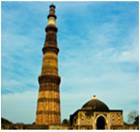
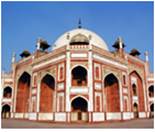
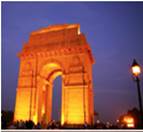
0830 hrs : Pick
up from the hotel and proceed for Half Day New Delhi Sightseeing as per the
Itinerary given below.
0915 hrs. : Visit
the 12th century Qutub-Minar in red and buff sandstone is the highest tower in
India. It has a diameter of 14.32m at the base and about 2.75m on the top with
a height of 72.5m. Qutb-u'd-Din Aibak laid the foundation of Qutab Minar in AD
1199.
The minar was
said to have been built to celebrate the victory of Mohammed Ghori, the invader
from Afghanistan, over the Rajputs in 1192. He raised the first storey, to
which were added three more storeys by his successor and son-in-law,
Shamsu'd-Din IItutmish (AD 1211-36). All the storeys are surrounded by a
projected balcony encircling the Minar and supported by stone brackets, which
are decorated with honeycomb design, more conspicuously in the first storey
1030 hrs. : Later
proceed for Humayun Tomb - Humayun's Tomb is situated in Delhi. Humayun's
senior widow Bega Begam, popularly known as Haji Begam built the tomb, at a
cost of 15 lakh rupees. It was built in the year 1565. It is among the first
examples of Mughal architecture, with high arches and a double dome. There are
two high double-storey gateways on the west and south that lead to the
enclosure. There is a pavilion in the center of the eastern wall and a bath
chamber in the center of the northern wall.
To enter the
tomb's chamber one has to come through the south entrance while the other three
sides are covered with mesh wire in white marble. In the quietude of the
central chamber lies the tomb, though the actual resting-place of Humayun is
directly beneath in an underground chamber. The lofty mausoleum is in the
center of the enclosure and rises from a podium faced with series of cells
having arched openings.
1200 Hrs. : Later
proceed for India Gate , Situated at the eastern end of Rajpath in Central
Delhi is the 42 m high stone arch of victory, renowned as the India Gate.
Formally known as the All India War Memorial previously, the foundation stone
of this magnanimous structure was laid by the Duke of Connaught in 1921 and
dedicated to the nation in 1931 by the then Viceroy, Lord Irwin.
Designed by Sir
Edwin Lutyens, the India Gate stands on a low base of red Bharatpur stone and
rises in stages to a huge cornice. Above on both sides is inscribed India,
flanked by MCM and to the right, XIX. The names of the 90,000 soldiers of the
Indian Army who lost their lives in World War-I, and an additional 13,516 names
who sacrificed their lives in the North-West Frontier in the Afghan War of 1919
are inscribed on the walls of this grand construction.
01245 hrs. :
Return to guest house/hotel.
Post
Conference Tours
This tour is
optional for the delegates. The delegates will be charged an amount of $100.
Two Day Tour :
Delhi - Agra (210 km/3.5 hrs)
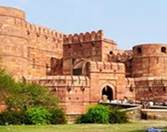
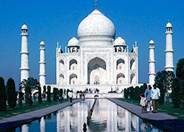
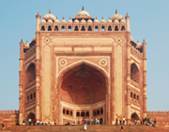
Visit Agra Fort,
a Mughal Architectural tradition that represents the assimilation of different
cultures. Akbar began the construction of this massive red sandstone fort
on the banks of River Yamuna in 1565. It was ready by 1571 though additions
were made until the rule of Shah Jahan, Akbar’s grandson.
Visit the world
famous TajMahal built by Shah Jahan in 1560 in memory of his queen Mumtaz Mahal
to enshrine her mortal remains. This architectural marvel is a perfectly
proportioned masterpiece fashioned from white marble that stands testimony to
the skill of 20,000 craftsmen brought together from Persia, Turkey, France and
Italy and who took 17 year to complete this ‘Monument of Love in Marble’.
FatehpurSikri is
also nearby and can be visited. Located 40 kms from Agra, the deserted city of
Fatehpur Sikri was built by Emperor Akbar in 1569, in honour of the great Saint
Sheikh Salim Chisti who blessed Akbar and prophesized the birth of three sons
to the heirless Emperor.
OR
Two Day Tour :
Delhi - Jaipur (260 km/5.5 hrs)




Visit to Amber
Fort which is situated in Amber, which is 11 kilometers from Jaipur. Amber,
originally, was the capital of the state before Jaipur. It is an old fort,
built in 1592 by Raja Man Singh. This fort is also very popularly known as the
Amber Palace.
Visit City
Palace, it is a splendid blend of the Rajasthani and the Mughal style of
architecture. The entire complex is divided into numerous courtyards, gardens
and buildings.
Jantar Mantar.
There are plenty of observatories all over the world, but the Jantar Mantar is
considered to be one of the largest observatories ever built. Jaipur was the
seat of Maharaja Jai Singh II during the 1720's and this is when this
magnificent structure was built here.
The Hawa Mahal or
the Palace of Winds was constructed for the royal ladies to watch the royal
processions without being seen, all monuments are located in the vicinity of
City Palace Complex of Jaipur.
Tour cost to be
borne by the individual participant. On prior intimation along with
registration, the tour will be booked.
Technical
tours
The organizers
will arrange for one day tours to site of erosion management in foothill region
and ravine land management. Pre-conference technical tour will be arranged in November
3-4, 2019 (Chandigarh/Agra), and post-conference tour will be arranged during November
10-11, 2019 (Dehradun/Karnal). The details of the sites to be visited are as
follows.
Karnal: A
city located in National Capital Region in the state of Haryana, is known as
the rice bowl of India. It is centrally located between Delhi and Chandigarh
and is 123 km from Delhi. Central Soil Salinity Research Institute is located
here pioneered in the rejuvenating the salt affected lands through advanced
techniques and feasible approaches. It is an internationally recognised
esteemed centre of excellence in salinity research. One can get live
demonstrations of Integrated farming system & multi-enterprise model, agroforestry,
conservation agriculture and drainage techniques for reclamation and management
of salt affected soils and use of poor quality irrigation waters.
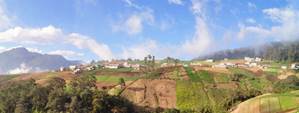
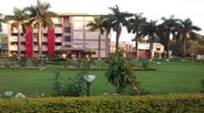
Dehradun:
It is the capital city of the Indian state Uttarakhand located in the
Himalayan foothills. It is the education hub in north India and famous Forest
Research Institute and Anthropological Museum are located here. Indian
Institute of Soil and Water Conservation (IISWC) has its head quarters here. An
exposure visit of participants helps to understand the experiences and impact
of developing watershed in different sites in foothill region. IISWC (erstwhile
CSWCRTI) is involved in development and dissemination of technologies for
conservation of soil, water and other natural resources and their conservative
uses. Particularly the participatory water resource development and
participatory research executed by CSWCRTI as worth emulating interventions.
Agra: 200 km
distance from New Delhi with driving time of 3 hours. Large scale land
development works on Soil Conservation, rejuvenation and restoration of
devastated ravine lands in the catchment of river Yamuna and Chambal.
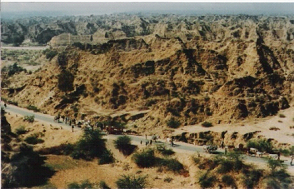
CONFERENCE
UPDATES
Information
contained in the circular and all updates are available at the website of SCSI http://scsi.org.in
Conference
Website: http://soilconservation.org
and WASWAC
official website: www.waswac.org
Download here:  WASWAC World Conference IV - flyer.pdf
WASWAC World Conference IV - flyer.pdf

